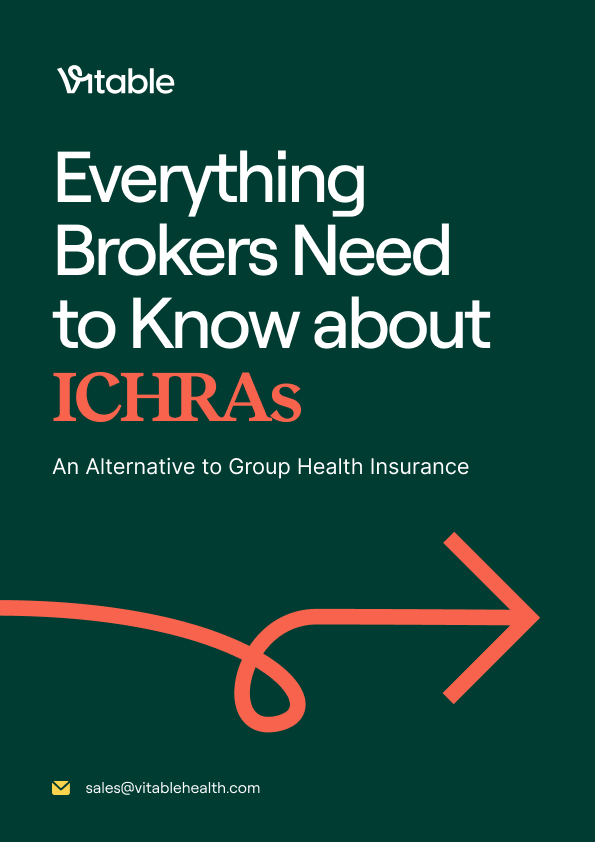Top 3 Healthcare Plans for Hourly Workers

The 2024 SHRM State of the Workplace report found that the top three priorities for businesses in 2024, according to Human Resources (HR) professionals, were:
- Maintaining employee morale and engagement
- Retaining top talent
- Finding and recruiting talent with the necessary skills
To meet these goals, 60% of HR professionals agreed that the most effective approach employers can take is to offer affordable and comprehensive healthcare coverage to their workforce. Ensuring that all workers, whether salaried or hourly, can access and afford the healthcare they need is one of the most important things an employer can do to retain their loyalty, engagement, and overall well-being.
However, in the current job market, significant gaps exist between salaried and hourly workers, with the number of hourly workers dissatisfied with their benefits packages increasing since 2023. For businesses seeking a competitive edge in attracting and retaining top-performing talent, offering comprehensive healthcare benefits to hourly workers is crucial.
From an ICHRA or QSEHRA to a DPC membership combined with a MEC plan, this article will explore three healthcare benefit solutions that offer excellent value while remaining cost-effective for both employers and employees.
1. ICHRA Health Insurance + Direct Primary Care (DPC)
While individual coverage health reimbursement arrangements (ICHRAs) and Direct Primary Care (DPC) memberships are still relatively new, companies are increasingly relying on the unique combination of these two models because they offer flexibility and big tax advantages for employees and employers alike.
Best for: Businesses of all sizes looking for budget control and better care access.
What is ICHRA Health Insurance?
ICHRAs are a flexible benefit model in which employers of any size can use pre-tax dollars to reimburse employees for premiums paid for an individual market health plan purchased on their own. This type of HRA can offer employers more cost control because they can choose their own reimbursement contribution amount; there are no minimum contribution requirements, nor any limits on how much an employer can reimburse. Visit our guide on the ICHRA for more details!
What is a Direct Primary Care (DPC) Membership?
Direct Primary Care (DPC) is a healthcare model where an employer (or individual) pays a monthly subscription fee directly to a primary care provider for access to a range of primary care and preventative services. Vitable’s Primary Care solution offers affordable access to same-day virtual visits, with no copays or deductibles, free prescriptions, and complimentary dependent coverage. DPC memberships operate separately from the traditional insurance-based billing system, offering individuals quicker access to quality primary care services at predictable pricing. Read more here about how DPC works.
Why Combine ICHRA and DPC?
Integrating these two benefit models creates a powerful coverage option for employers of all sizes. For example, the DPC membership can address employees’ ongoing primary care needs, and the accompanying ICHRA can be used to reimburse other healthcare expenses, such as specialist visits, hospitalizations, and prescription medications. This approach provides comprehensive coverage for hourly workers, while employers benefit from controlled costs and greater employee satisfaction.
Benefits of ICHRA + DPC:
- Potential long-term cost savings: An ICHRA allows employers to create a predictable budget of healthcare reimbursements, while DPC reduces employees’ need for high-cost urgent care and emergency visits.
- Tax incentives: Employers who contribute reimbursement amounts into an ICHRA are exempt from paying payroll taxes, and contributions are tax-deductible. Employees are also exempt from paying income tax on their reimbursements.
- Access to quality healthcare: DPC providers deliver more personalized, attentive care to patients with shorter wait times. DPC memberships also eliminate per-visit costs, which is especially important for those needing chronic disease management.
- Health plan and provider flexibility: Employer-provided reimbursements through an ICHRA enable employees to select the health plan that best suits their needs, while DPC allows workers access to a primary care provider without restrictions on network access.
- Simplicity: ICHRAs and DPC memberships provide more straightforward health coverage than traditional group health plans for employers, making it easier for employees to understand and utilize their benefits.

Download 2025 Employer Guide to ICHRA
Vitable’s ICHRA Guide gives employers a clear, step-by-step resource for building smarter, ACA-compliant benefits.
This guide explains how ICHRAs work, who qualifies, and how Vitable simplifies setup, onboarding, reimbursements, and compliance — while giving employees more flexibility, control, and care.

Download Vitable’s 2025 Broker’s Guide to ICHRA
The Broker Guide to ICHRAs is a comprehensive resource that helps brokers understand, sell, and manage Individual Coverage HRAs with confidence.
This guide covers everything from compliance and class design to administration flows, case studies, and how Vitable streamlines quoting, enrollments, and reimbursements for brokers, employers, and employees.
2. QSEHRA + Direct Primary Care (DPC)
Small businesses often struggle to offer competitive health coverage in today’s job marketplace, mainly due to traditional group plans being expensive, complicated, and poorly tailored for small teams. With this in mind, the Qualified Small Employer Health Reimbursement Arrangement (QSEHRA) was designed specifically to address the needs of smaller employers.
Best for: Employers with fewer than 50 full-time employees
What is a QSEHRA?
A QSEHRA is designed only for small businesses with fewer than 50 full-time equivalent employees. Eligible small employers can reimburse employees through a QSEHRA for qualified medical expenses, including health insurance premiums, up to IRS-set annual limits. To be eligible for reimbursements through a QSEHRA, the employee must be full-time and have proof of enrollment in a plan that has minimum essential coverage (MEC), as defined by the Affordable Care Act (ACA).
A key difference is that this type of HRA sets an annual limit on an employer’s reimbursement contributions, unlike with an ICHRA. For 2025, the U.S. Internal Revenue Service (IRS) announced the contribution limits for a QSEHRA are $6,350/year for individual coverage and $12,800/year for family coverage. Learn more about what a QSEHRA can offer your employees here.
Why Pair QSEHRA with Direct Primary Care?
As with the ICHRA, combining a QSEHRA with primary care membership delivers several benefits for small employers looking for an excellent health benefits package that still fits their needs and budget. DPC fills the gaps by offering affordable, ongoing care for everyday health needs. Employees receive unlimited primary care, while employers reimburse major expenses through a QSEHRA.
- Tax incentives: Employers who contribute reimbursement amounts into a QSEHRA are exempt from paying payroll taxes, and contributions are tax-deductible. Employees are also exempt from paying income tax on their reimbursements.
- Greater cost control: Employers can set their own QSEHRA contribution amount, as long as it does not exceed the IRS annual limit.
- Cost-effective: Small employers may have more limited budgets that cannot accommodate group health insurance, but a QSEHRA is an affordable option to still provide extensive health coverage to their employees.
- Health plan flexibility: Although employees are required to be enrolled in a plan that meets the ACA’s MEC requirements, QSEHRAs otherwise do not limit their healthcare options, unlike traditional insurance providers.
- Small team-friendly: A QSEHRA does not require a minimum number of employees to participate for employers to qualify for offering this health plan, making it a less complicated healthcare solution that can adapt to the employer’s financial capabilities.
In addition to these advantages, DPC membership offers similar benefits to both employees and employers as the ICHRA + DPC approach. As we discussed above, these include simplified administration processes that enable employees to effectively utilize their primary care membership, predictable and affordable monthly costs for employers, and potential long-term cost savings due to employees having enhanced access to primary care through DPC providers.
3. Vitable's MEC Plus Plan: ACA Compliance Meets Affordability
The third option employers can turn to when looking to offer comprehensive, yet affordable healthcare benefits for hourly workers is the MEC Plus plan from Vitable, an affordable health benefits provider. Like all of our MEC plans, the MEC Plus plan ensures your business meets ACA compliance requirements, avoiding costly ACA penalties, while offering excellent health benefits to your employees and their families without breaking the bank.
How Vitable’s MEC Plus Plan Benefits Both Employers and Employees
The MEC Plus plan is Vitable’s most affordable ACA compliance solution for employers, combining MEC with unlimited access to primary health services offered through our innovative Direct Primary Care (DPC) membership.
The MEC component of this plan from Vitable will cover your employees for preventative services (including contraceptives) with no annual or lifetime limits, while the DPC membership covers virtual primary care, episodic care, mental health coaching, labs, and prescription coverage, and annual wellness checks.
Under the MEC Plus plan, there are no copays or deductibles required for preventative or wellness visits, meaning employees get reimbursed at 100%. X-rays, primary care office visits, specialist office visits, and urgent care visits are also covered, with copays ranging only from $10-$50. In addition to our DPC subscription services, the MEC
Plus plan offers employees the following benefits:
- Comprehensive preventative care
- Hassle-free access to virtual visits
- Medical bill advocacy
- ACA Compliance (a)
- Access to a national network of providers
By choosing Vitable’s MEC Plus plan, employers can take advantage of our expertise in health benefits administration. Enjoy rapid, hassle-free onboarding and ongoing coverage support from our member support teams, as well plan usage reporting, customized benefit guides for employees, and 1094/1095-C tax filings.
What Sets These Health Plans Apart?
Vitable offers employers the option to enroll in any of these three innovative healthcare solutions, and their common differentiator is the integration with DPC services. To reiterate, with a monthly DPC subscription, members get unlimited access to essential primary care services, significantly reducing their out-of-pocket costs compared with traditional group health plans.
Providing consistent access to affordable preventative and wellness providers decreases long-term healthcare spending across the board because DPC helps employees manage their health, reducing the need for costly emergency or urgent care visits.
These plans are also unique in that they all offer customization and highly adaptive pricing models that can be scaled to meet the workforce needs of businesses of all sizes. For example, with an ICHRA and QSEHRA, the annual reimbursement contribution amount can be set by the employer according to their financial capabilities.
Conclusion
These top three healthcare solutions represent the future of affordable, yet extensive employee healthcare benefits for hourly workers. By combining flexible HRA or MEC models with Direct Primary Care services offered by providers like Vitable, employers can deliver comprehensive health coverage with several customization options and budget-friendly pricing. Whether you choose an ICHRA + DPC plan, QSEHRA + DPC plan, or Vitable’s MEC Plus plan, you are taking an important step in investing in a long-term healthcare solution that not only prioritizes your employees’ well-being but also promotes greater financial success for your business.
Ready for Better Benefits?
Let’s build a health benefits strategy your employees will actually use and your finance and operations teams will appreciate. We’ll walk you through your options, run a cost-benefit analysis, and design a custom health coverage plan that keeps your business compliant and competitive.
Use the form below to learn more about our MEC plans, ICHRA and QSEHRA offerings, and how Vitable’s DPC membership can help your business offer comprehensive healthcare benefits for hourly workers at affordable prices. If you’re ready, you can book a free consultation with Vitable today!
Ready to learn more?
Stay ahead with the latest insights on healthcare, benefits, and compliance—straight to your inbox.
Get a quote
Get a personalized health benefits quote tailored to your company’s unique needs.
Vitable helps employers provide better healthcare to their employees and dependents by improving accessibility, cost, and quality.
